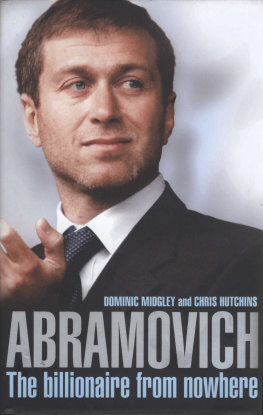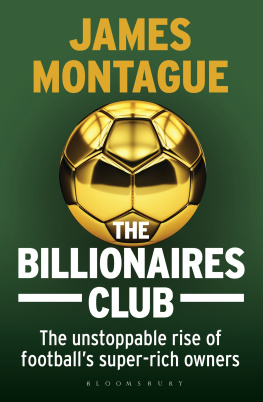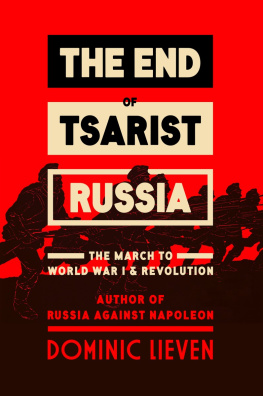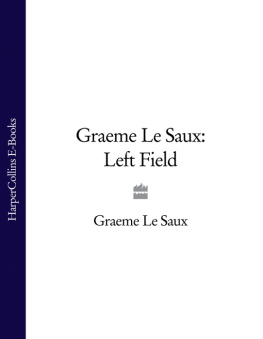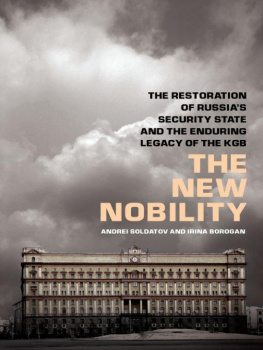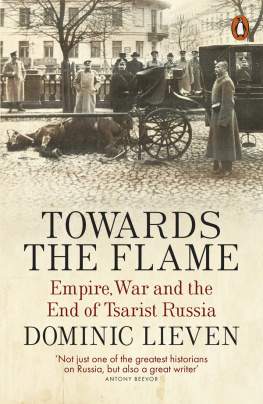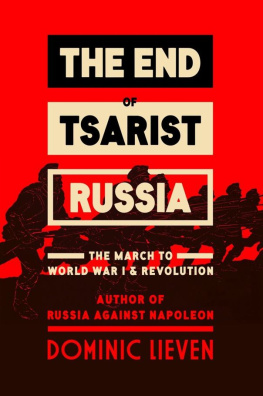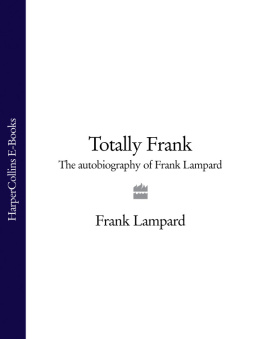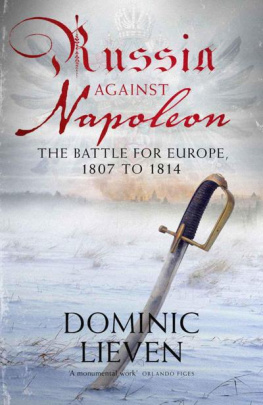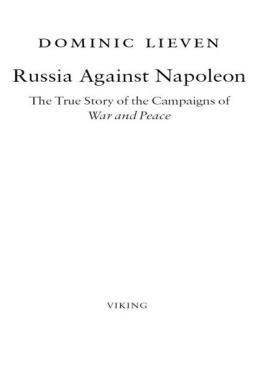ABRAMOVICH
The billionaire from nowhere
Dominic Midgley and Chris Hutchins
ePub Edition published by Christopher Hutchins Ltd 2011
All rights reserved. No part of this publication may be reproduced, stored in a retrieval system, or transmitted, in any form or by any means, electronic, mechanical, photocopying, recording or otherwise, without the prior written permission of the publishers.
The Authors assert the moral right to be identified as the author of this work
A CIP catalogue record for this book is available from the British Library
ISBN 978-0-9570207-6-4
ebook by EBooks by Design.co
www.ebooksbydesign.co
All photographs supplied courtesy of the authors with the exception of the following: AP 8(t), ll(br), 12(t&mr), 13(b); Camera Press 8(b), ll(tr), 13(t8tm); Corbis ll(bl); Empics 15(mr), 16(m); Getty 16(bl); PA ll(tl), 12(ml); Reuters 12(b), 15(t&ml), 16(tl&r); Solo Syndication 14(bl), 15(b); YPS Collection.de 14(t); Yuri Feklistov (www.feklistov.com) 4, 5, 6, 7, 14(m&br), 16(br)
CONTENTS
Baptized into Greatness
The Making of the Man
Hitting the Jackpot
An Orphan Joins 'The Family'
Crude Expansion
Playing Politics
A Frozen Kingdom
A People Set Apart
Selling Up
Mister Chelski
Come On You Reds
The Dream Team
Where the Living is Easy
An Audience with the Grey Cardinal
Stepping Out
Making Yuksi
The Price of Wealth
An Empty Trophy Cabinet
What The Future Holds
ACKNOWLEDGEMENTS
Writing the unauthorized biography of Roman Abramovich was always going to be a bit like winning away at Arsenal: difficult but - as Chelsea showed in April 2004 - not impossible. Few in the good books of a billionaire are prepared to put such an agreeable position in jeopardy needlessly; so his friends and associates invariably wanted to ask his permission before talking to us, and his answer was equally invariably, 'Nyet'. Many more independent-minded souls did speak out, however, as did a number of people who had fallen foul of him in the past. Their help, together with that of many who had known him as neighbours, friends or teachers before he made his billions, meant we were soon in a position to present a rounded portrait of the richest man in Britain. At that point, Abramovich decided that we should be granted a degree of cooperation and we were able to discuss many of our findings with his representatives.
Thanks are due especially to Boris Berezovsky and his public relations adviser, Lord Bell; Eugene Tenenbaum, chairman of Millhouse Capital and head of corporate finance at Sibneft; John Mann, head of investor relations at Sibneft;
Bruce Buck, chairman of Chelsea Village; Stuart Higgins, former editor of the Sun and PR consultant to Chelsea FC; Gregory Barker MP, former head of investor relations at Sibneft; Chrystia Freeland, deputy editor of the Financial Times and former Moscow bureau chief; Richard Addis, assistant editor of the Financial Times ; Mark Lawrenson, former Liverpool centre-back and pundit on BBCl's Football Focus; Mark Meehan, author of Blue Tomorrow, James Steen, former editor of Punch and gossip columnist; Harold Elletson, former MP and Russia expert; Jarvis Astaire, sport and show business promoter; Professor Bernie Black, professor of law, Stanford University Law School; Professor Orlando Figes, author of Natasha's Dance , a cultural history of Russia; David Satter, author of Darkness at Dawn: The Rise of the Russian Criminal State ; Roy Collins, football correspondent of the Sunday Telegraph ; Benedict Allen, author and television explorer; Hal Bernton of the Seattle Times ; Elizabeth Manning of the Anchorage Daily News ; Bruce Marks, partner in Philadelphia-Moscow law firm Marks and Sokolow; Sergei Kolushev and Ivan Ulanov of the Russian Economic Forum; Bryan Morrison, owner of the Royal Berkshire Polo Club; Roddie Fleming of Fleming Family and Partners; the investor Nicholas Berry; and Yuri Feklistov, Abramovich's favourite photographer, and his associate, Nathalie Beliaev.
In Moscow: Alexei Venediktov, editor-in-chief of Radio Ekho of Moscow; James Fenkner, head of research, Troika Dialogue; William Browder, chief executive officer, Hermitage Capital Management; Eric Kraus, strategist at Sovlink investment bank; Gideon Lichfield, Moscow correspondent of The Economist ; Elena Dikum, former press aide to President Putin; German Tkachenko, team president, Krylia Sovietove
Samara; A Pavlov, press officer for President Putin; Nadezhda Rostova, Abramovich's form teacher at Moscow's School No. 232; Ludmilla Prosenkova, headmistress of School No. 232; Yevgeni Satanovsky, chairman of the Russian Jewish Congress; Nikolai Propirny, editor of Yevreyskaya Gazeta (Jewish News); Vladimir Yudin, former Duma deputy; Kevin O'Flynn of the Moscow Times; Fyodor Bondarchuk, restaurateur and socialite; and Alla Zelenina.
In Ukhta: Ivan and Ludmilla Lagoda, former neighbours; Dmitri Sakovich, childhood friend; Yevgeny Devaltovsky and Natalya Litvinenko of the Ukhta Industrial Institute; Irina Alioshina, deputy headmistress of School No. 2; Irina Kozhevina, deputy director of School No. 2; and Aleksandra Chumanova, editor of Nep + S.
We would also like to thank our fixers in Moscow, Elena Smolina and Guy Pugh; our Russian translator Elly Watson; and Bruce Johnston, Rome correspondent of the Daily Telegraph, for translating pieces from the Italian press. We are also extremely grateful to Fletch Dhew, Mark Hollingsworth, Margaret Holder, Kate Sissons, Lawrence Joffe, Nick Kochan, Misha Maltsev, the Reverend Edward Doyle, Stephen Hargrave, Tony Trowbridge, Wendell Steavenson, April Tod, Grace Bradbury, David Masters, Adrian Hargreaves, Maurice Skehan, Colin Cunliffe and Neill Kelly.
And last, but far from least, we would like to thank our agent Jonathan Lloyd for making it all possible and Trevor Dolby, Michael Doggart, Tom Whiting, David Daley, Jane Beaton, Zoe Mayne and Holley Miles at publishers HarperCollins.
Dominic Midgley and Chris Hutchins August 2004
PROLOGUE
THE BILLIONAIRE FROM NOWHERE
The first the Russian public heard of a shadowy Kremlin insider called Roman Abramovich was in 1998 when he was described as President Yeltsin's 'wallet' on Itogi , a popular current affairs show hosted by the economics commentator Yevgeni Kiselev. By this time, Abramovich was already a paper billionaire several times over and, as word of his vast wealth spread, the media began to take more of an interest. There was only one problem: how to illustrate stories about the man who was becoming known as the stealth oligarch?
As late as 1999, not a single newspaper or television station had a picture of Abramovich. After tiring of making do with artists' impressions of the sort produced by sketchers in court, one newspaper decided to throw money at the problem. It offered a one million rouble reward for anyone who could produce a photograph of the reclusive powerbroker. The offer of cash had the desired result and the blurred image of Abramovich procured via that bounty was used for months across the Russian press.
At about this time, Abramovich's public relations adviser, an Englishman called Gregory Barker - now a Conservative MP - was trying to persuade him to have 'a nice set of pictures' taken. After all, if it was no longer possible for him to avoid a public profile then it made sense to present as benign an image as possible. Abramovich turned to Yuri Feklistov, a photographer on the Russian weekly magazine Ogonyok. Feklistov's entree to Abramovich's inner circle came courtesy of his friendship with Valentin 'Valya' Yumashev, the journalist who had ghosted Boris Yeltsin's memoirs and gone on to marry his daughter Tatyana. The Yumashevs played a key role in the formation of Abramovich's fortune and have been close friends since 1996. Valya and Yuri, meanwhile, have known each other for twenty years after first working together at the newspaper Komsomolskaya Pravda and, thanks to his old friend, Feklistov is now well established as Abramovich's court photographer. Apart from shooting him both at home and at work in Moscow, he has accompanied Abramovich on family holidays to Scandinavia and the south of France, and trips to the province of Chukotka where the oligarch was elected governor in 2000.

